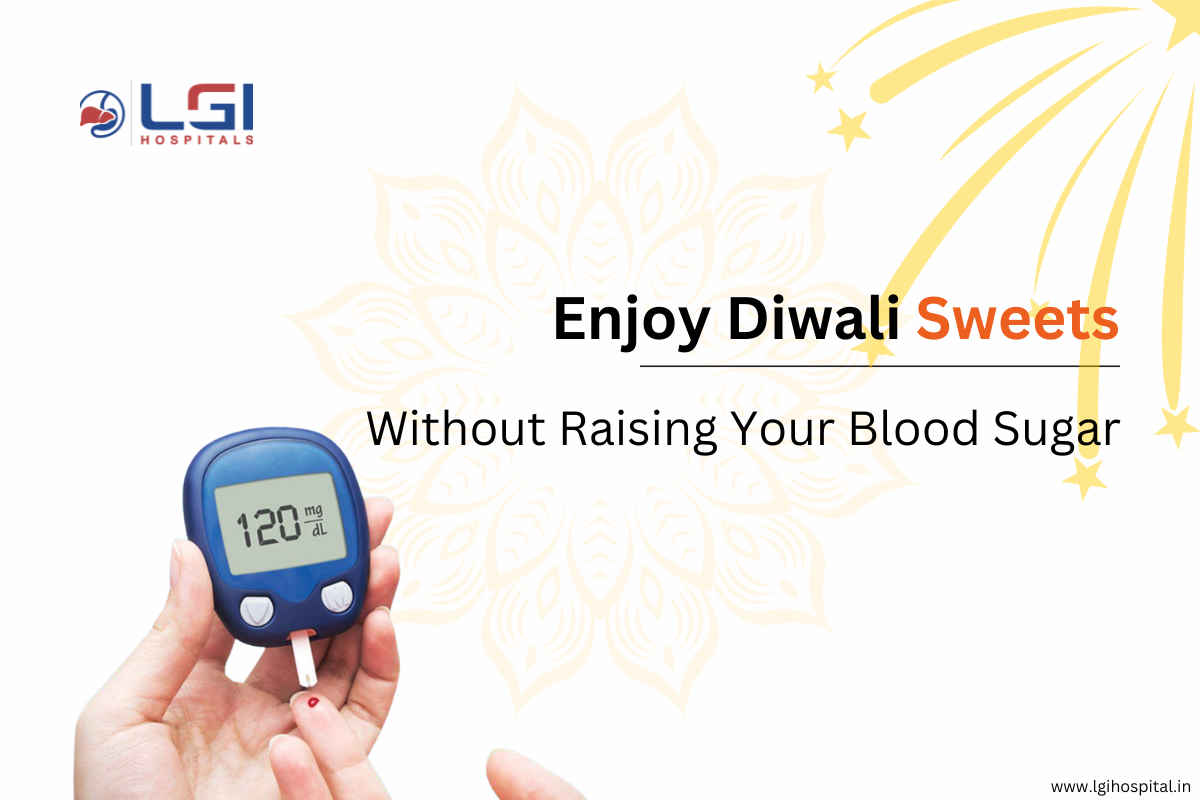Diwali is a time for celebration, and sweets are a big part of the fun. However, managing blood sugar during the festival can be tricky for those with diabetes. By making smart choices like opting for sugar-free alternatives, watching portion sizes, and pairing sweets with protein, you can enjoy the festival without causing sugar spikes. Regular monitoring is key, and LGI Hospital offers comprehensive diabetes care and advice to help you manage your health effectively.
1. Choose SugarFree or LowSugar Options
One of the easiest ways to enjoy sweets during Diwali is by opting for sugar-free or low-sugar alternatives. Many brands now offer delicious sugar-free sweets perfect for people who need to manage their sugar. Additionally, you can try making your own sweets at home using natural sweeteners like stevia or monk fruit, which won’t spike your blood sugar.
2. Watch Your Portion Sizes
It’s tempting to indulge in large portions during the festive season, but this can lead to a rapid rise in sugar. Even if the sweets are low in sugar, it’s important to control how much you eat. A small serving can satisfy your sweet tooth without affecting your sugar significantly.
3. Pair Sweets with Fiber or Protein
Pairing sweets with high-fiber or protein-rich foods can help slow down the absorption of sugar into your bloodstream. This can prevent a sudden spike in your sugar levels. For example, you could enjoy a small portion of sweets with nuts or a fiber-rich salad.
4. Stay Active
Physical activity is a great way to manage sugar levels. During Diwali, try to incorporate some light exercise like walking, dancing, or yoga. This helps your body use glucose more efficiently and can prevent your blood sugar from spiking after eating sweets.
5. Monitor Your Blood Sugar Levels
Regularly checking your blood sugar levels is important, especially during festive seasons when you may be eating foods outside your usual diet. Keeping an eye on your levels can help you stay in control and avoid any serious blood sugar spikes. If you’re not sure what your levels should be, here’s a quick look at normal blood sugar levels:
| Time of Day | Normal Blood Sugar Levels |
| Before meals | 70–130 mg/dL |
| 2 hours after meals | Less than 180 mg/dL |
| Bedtime | 100–140 mg/dL |
6. Be Aware of High Blood Sugar Symptoms
Sometimes, despite your best efforts, sugar levels can still rise. It’s essential to recognize the symptoms of high blood sugar, so you can take action quickly. Common signs include:
-Excessive thirst
-Frequent urination
-Fatigue
-Blurry vision
If you experience any of these symptoms, check your sugar immediately and consult your doctor if necessary.
7. Consider Supplements to Help Manage Blood Sugar
There are natural supplements that may help lower sugar levels. Some popular options include:
Cinnamon: Known to improve insulin sensitivity.
Berberine: A plant compound that can help reduce sugar.
Chromium: An essential mineral that aids in regulating sugar.
Before trying any supplements, it’s important to consult your healthcare provider to make sure they’re safe and effective for you.
8. Follow a Sugar Chart
It can be helpful to have sugar chart handy to track your levels throughout the day. This will give you a clear understanding of when your levels are high or low and help you make informed decisions about your food choices.
Final Thoughts
Enjoying Diwali sweets is possible, even if you have to manage your sugar. By making mindful choices, monitoring your levels, and staying active, you can celebrate the festival without worrying about blood sugar spikes. Remember, moderation is key, and with a little planning, you can enjoy all the flavors of Diwali safely.

